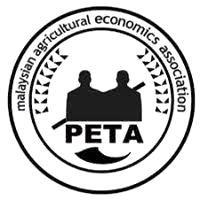Household Preferences for Food Waste Management System
DOI:
https://doi.org/10.36877/mjae.a0000155Abstract
Improper waste management has received remarkable attention from the stakeholders due to its
negative impacts. Due to the increase in population, the waste generated in Malaysia also is increasing. Currently, landfilling is the main method of disposal. Considering few issues related with this approach such as the landfills have reached its capacity, environmental pollution as well as the bad condition of the landfill, alternative measure to manage the waste is crucial. Food waste can be utilized into other uses such as converting into fertilizer, electricity generation as well as the alternative for fuel. However, in order to implement such program, innovative measure for appropriate management of the food waste collection are required. In order to encourage the participation of household on food waste management, determining the preferred attributes by the household is crucial. Therefore, this study attempts to determine the household preferences for food waste management system in Malaysia as well as their willingness to pay for the food waste management system. The discrete choice experiment was used in order to accomplish the objectives of the study. The findings from this study suggests that the frequency and time of food waste collection are among the preferred attributes for food waste management system. The result also suggests that the willingness to pay for food waste management significantly varied by income and age of the respondents. Thus, it is suggested that if the government decides to come out with food waste management program, frequency and pick up time of the food waste are among important attributes that need to be considered.


.png)

.jpg)
